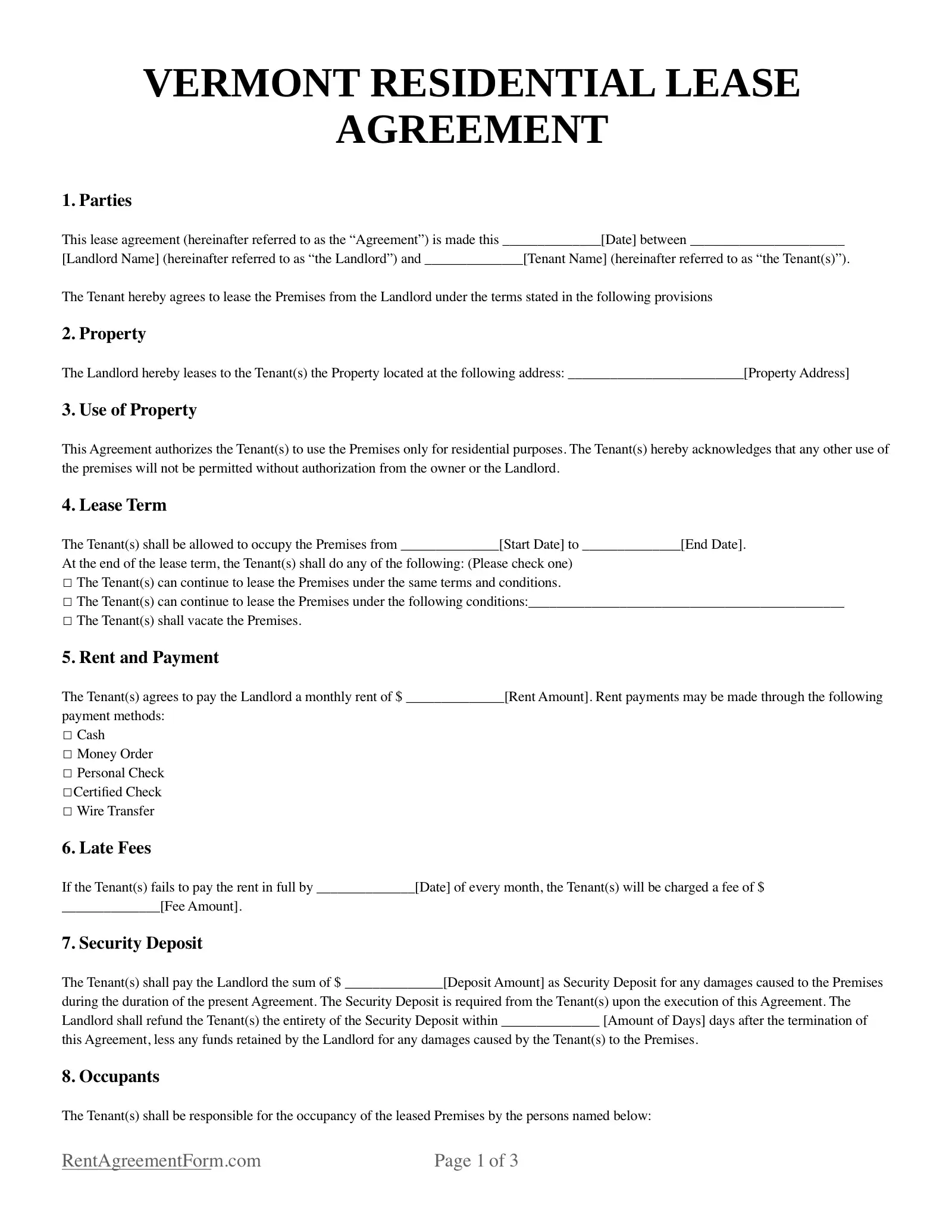Vermont Residential Lease Agreement Form
A residential lease agreement form is a legal and binding document that outlines the terms of leasing a residential property. It is a contract between the landlord and the tenant.
There are cases where a rental agreement is made verbally. However, to avoid confusion and prevent disputes, a written agreement is preferable. We offer simple, fillable, and printable forms online for convenience. They contain the standard sections for the state of Vermont, especially since some provisions vary from one US state to the next.
The residential lease agreement is created and signed after the rental application form — a document that a prospective tenant submits to a landlord to indicate their interest in renting a residential property. For any property, there can be more than one interested tenant and several rental application forms.
Following a background check, the landlord will approve their ideal tenant from among a pool of applicants. Once the landlord has selected a tenant based on their application form, a discussion over the lease will proceed.
The lease document contains details about the type of property, room details, size, and address. Other pieces of information include the monthly rent, its due date, and other stipulations agreed on by the landlord and tenant. For example, both parties may want to clarify what happens if somebody violates the provisions stated in the lease agreement.

Required Disclosures
Lead-Based Paint Disclosure Rule
This is the only required disclosure from the landlord in Vermont. The law states that realtors and landlords must inform tenants if they will be occupying a property built before 1978 due to the possibility of lead-based paint. They are also required to provide resources about its dangers (Lead-Based Paint Hazard Reduction Act of 1992 § 1018).
Rent Grace Period
There is no statute that mandates a rent grace period in Vermont. Usually, a rent grace period gives the tenant some time after the rent due date to settle their rent. However, since it isn’t required in Vermont, your landlord is entitled to receive your rent on the due date you both agree on (usually the first of the month).
If the tenant fails to pay rent on time, any payments after the due date are late, and the tenant may have to pay a late payment fee.
A Vermont landlord can impose a late payment fee as long as they can justify the late charge. To do so, there must be proof that the landlord lost some money because the tenant failed to pay rent on time.
Security Deposits
Security deposits in Vermont are not capped. However, on average, a Vermont landlord collects between a month’s and two months’ worth of rent. A security deposit is a sum of money that a landlord collects from the tenant to give the landlord peace of mind. It is meant to cover real estate expenses if there is damage to the property during occupancy.
There are cases when security deposits can cover early termination. When a tenant decides to terminate the tenancy before the contract ends, the landlord may complain that they lost part of their livelihood. When the tenant leaves, the space will be empty, and it will not earn income. This is why there are landlords who include stipulations on early termination in their lease agreements.
The security deposit is refundable, unlike the rental application fee. The landlord has 14 days to return the security deposit to the tenant when the lease ends (9 V.S.A. § 4461).